US plans to reestablish embassy in Solomon Islands after 29 years
The United States intends to re-establish its diplomatic mission in the Solomon Islands, as Washington tries to boost its presence in the South Pacific Ocean, where China is allegedly expanding its influence.
Situated in Oceania, the Solomon Islands is a sovereign country consisting of six major islands and more than 900 smaller ones. The island chain, home to 800,000 people, was engulfed in unrest and riots in November 2021, almost a year after it decided to end diplomatic ties with the Chinese Taipei (Taiwan) and establish formal links with China.
Partly angered by the decision and partly infuriated by persisting poverty and unemployment, protesters voiced their dissent against veteran Prime Minister Manasseh Sogavare. They tried to storm parliament and then went on a three-day rampage, torching much of the capital Honiara’s Chinatown.
In 1993, Washington downgraded its diplomatic presence in Honiara and US Secretary of state Antony Blinken is now set to announce the re-establishing of an embassy on the Solomon Islands during his visit to nearby Fiji.
The US top diplomat arrived in Fiji after attending a meeting in the Australian city of Melbourne between the US, Japan, India and Australia, at which the so-called Quad pledged to further enhance cooperation to ensure an Indo-Pacific region free from what they called “coercion”, apparently referring to China’s purported economic and military expansion in the region.
In a briefing on the flight, a senior US administration official alleged that “there are very clear indications that (China) want to create military relationships in the Pacific.”
“The most pressing case right now is what’s going on in the Solomon Islands. With Chinese security personnel bucking up an increasingly besieged president in a way that has caused a lot of anxieties across the region,” the official further told traveling reporters.
In the wake of the deadly protests, China said late last year that it would send police advisers and riot gear to the Solomon Islands, which was among the latest countries to cut ties with Taiwan following Burkina Faso, the Dominican Republic, Sao Tome and Principe, Panama, and El Salvador.
Taiwan is now left with formal relations with just 15 countries, mostly small and poor nations in Latin America and the Pacific, including Nauru, Tuvalu and Palau.
China has sovereignty over the Chinese Taipei, and under the "One China" policy, almost all world countries recognize that sovereignty. The US, too, recognizes Chinese sovereignty over the island but has long courted Taipei in an attempt to unnerve Beijing.
The US Congress and the White House will need to approve the proposal of the reopening of the US embassy in Honiara.
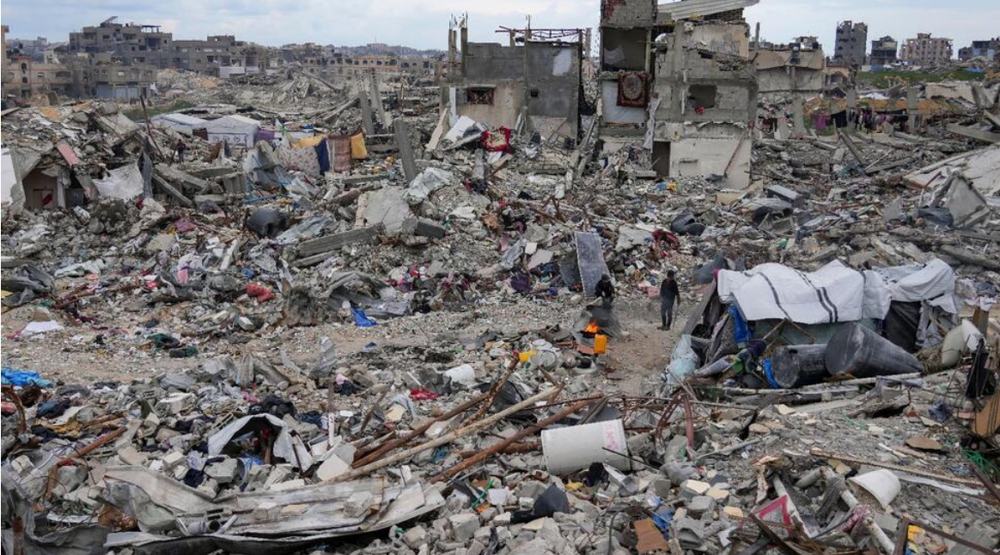
Skipping congress, Trump approves $3b in arms sales to Israel
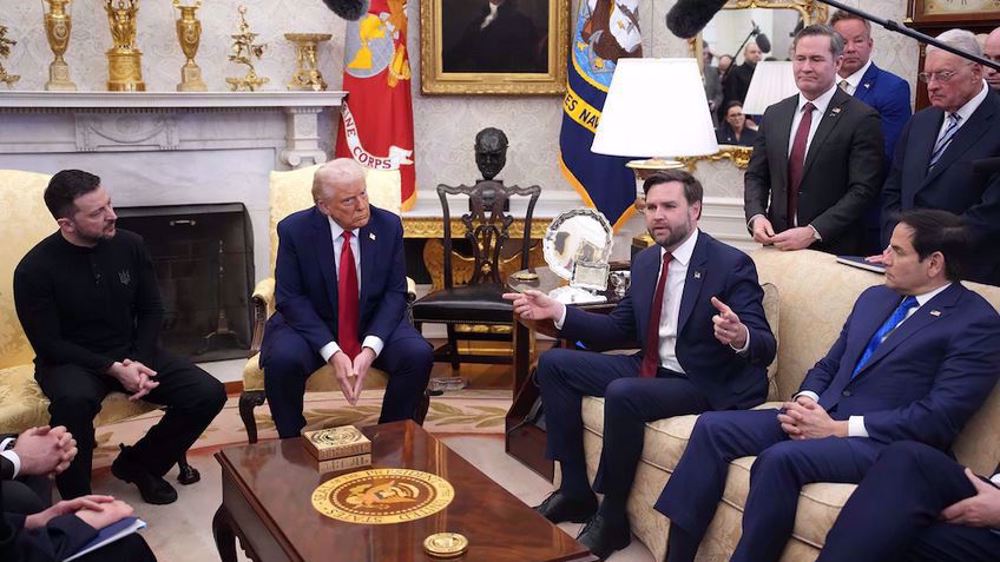
Zelensky should apologize for ‘fiasco’ with Trump: US state secretary
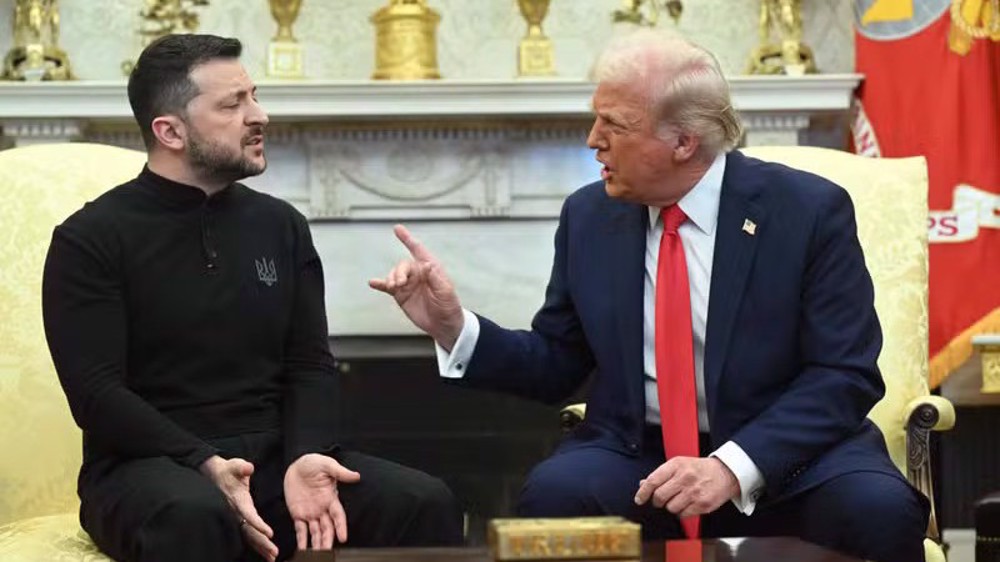
Trump, Vance rebuke Zelensky in heated Oval Office confrontation
Explainer: How can Iran help South Africa advance its civilian nuclear program?
The importance of creative industry in Iran’s future
Israelis push for Russia to keep Syria bases, want Damascus 'weak, divided': Report
US terminates support for Ukraine energy grid restoration
Israeli soldiers stole ‘mountains’ of cash and gold from Gaza, Lebanon, and Syria: Report
PKK militants declare ceasefire with Turkey to end 40-year bloodshed
VIDEO | largest funeral since 1996 Qana massacre held in Lebanon
Hamas calls on Palestinians to resist Israeli restrictions on al-Aqsa Mosque during Ramadan


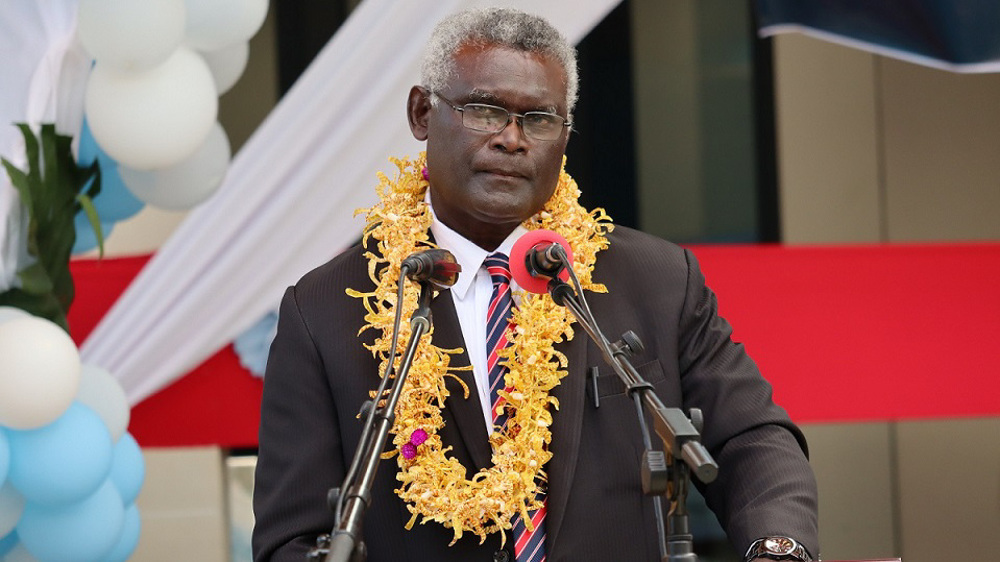
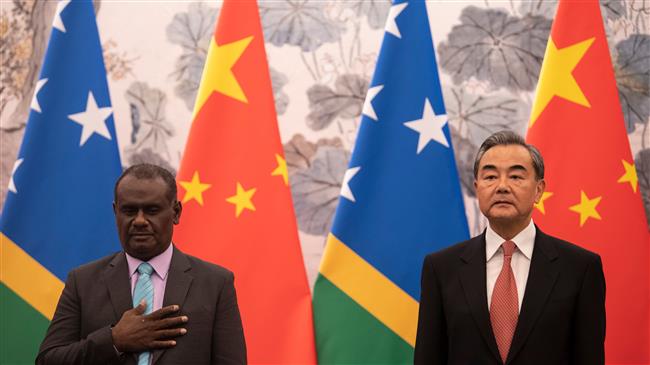
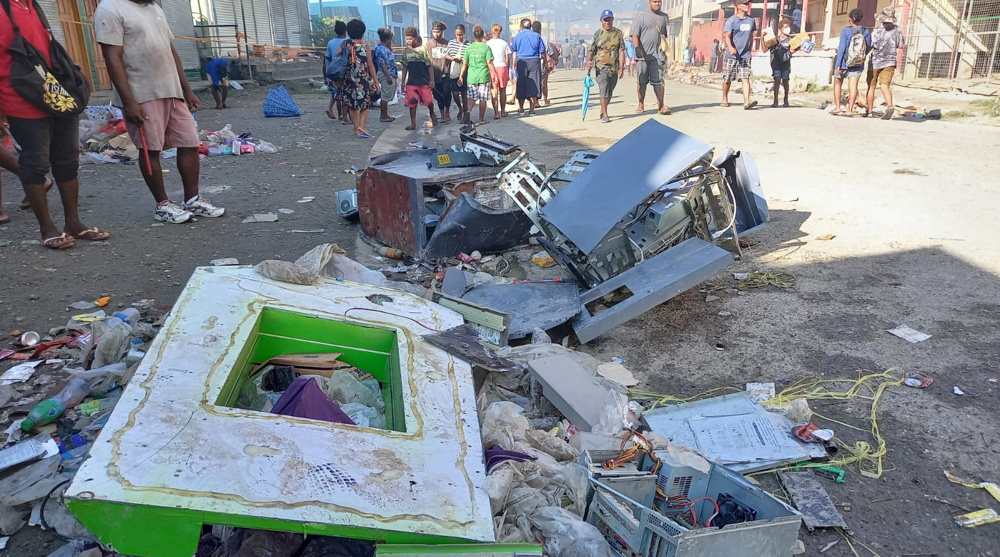




 This makes it easy to access the Press TV website
This makes it easy to access the Press TV website